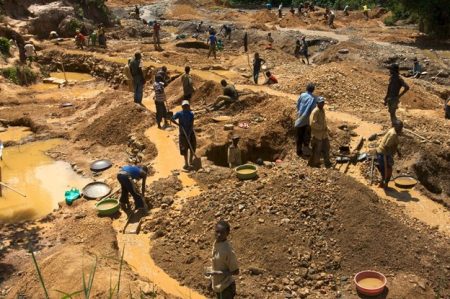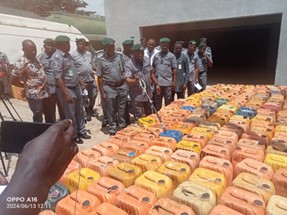 8 September 2012, Sweetcrude, LAGOS – MANAGING Director of the Nigeria LNG Limited, Babs Omotowa, has said Nigeria will attract fresh foreign direct investment worth $12 billion (N1.89 trillion in the next four years through the proposed Nigeria Liquefied Natural Gas, NLNG, Train 7 project.
8 September 2012, Sweetcrude, LAGOS – MANAGING Director of the Nigeria LNG Limited, Babs Omotowa, has said Nigeria will attract fresh foreign direct investment worth $12 billion (N1.89 trillion in the next four years through the proposed Nigeria Liquefied Natural Gas, NLNG, Train 7 project.
He said the project, when completed, would generate additional $3 billion revenue for Nigeria annually and create about 13.000 new jobs.
Omotowa stated this, Monday, when the Minister of Trade and Investment, Olusegun Aganga, paid a one-day facility visit to the NLNG plant in Bonny Island, Rivers State.
“We are expecting Foreign Direct Investment of $12billion from our proposed Train 7 plant, which we hope would be completed within the next four years. The project is expected to create 13,000 new jobs and generate $3billion revenue annually for the government,” he said.
He said of the performance of the NLNG so far: “NLNG has been doing very well. From 1989 till date, we have earned over $50billion, adding, “but since we have been in operation, we have been able to pay back $22billion to the shareholders”
Omotoba said the firm is expecting about between $11 -$12billion in revenue, from which “we will pay shareholders between $5 to $6billion.
Before the end of this year, according to him, the company would have close to 400 cargoes of liquefied natural gas for export, adding, “this means our plant is doing very well.”
In a statement, Aganga described the NLNG project as a big success story for Nigeria, saying the Ministry of Trade and Investment is committed to providing the enabling environment to encourage the inflow of FDI into the country.
He said: “NLNG is one of the biggest success stories in our country. From what the Managing Director told me, the company has invested $13billion so far since inception, and has become a pace-setter in terms of revenue generation for the government.
“The purpose of my visit today is to assess the key areas that we want to diversify and increase our export base. Also, we are looking for gas to help us develop the petro-chemical sector of the economy, which is critical because we cannot have a strong and virile industrial sector without a strong petrochemical sector which will support the growth and development of the automobile, textile, plastic, chemical and pharmaceutical industries.”



